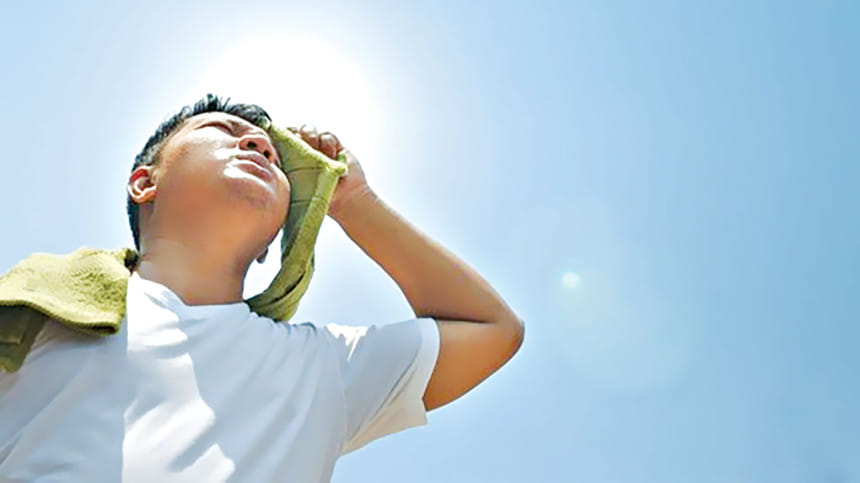Guard yourself this summer against these common health problems

Heat stroke is a severe form of hyperthermia caused by the body absorbing too much heat. Heat stroke is a common summer event that can raise the body temperature to 40°C. Nausea, vomiting, and headaches are common with fever.
It is that time of year when one has more concerns than just sweating out the summer heat. So, prepare yourself this summer to avoid some of these annoying health issues. Here are some of the most common summer illnesses to avoid and some helpful tips:
Heat stroke: Heat stroke is a severe form of hyperthermia caused by the body absorbing too much heat. Heat stroke is a common summer event that can raise the body temperature to 40°C. Nausea, vomiting, and headaches are common with fever. These are all symptoms of a heat stroke. Wear light-weight, loose-fitting clothing to allow for air circulation. Everyone needs to drink plenty of fluids to stay hydrated.
Dehydration: It occurs when the fluid loss exceeds intake. Dehydration is the most common summer illness because we unknowingly lose a lot of water through sweating or urination. The main symptom of dehydration is extreme thirst. The best way to treat dehydration is to drink lots of water. Adults should drink 2L of water daily. Coconut water, for example, can help prevent dehydration.
Sunburn: Sunburns are caused by overexposure to the sun's ultraviolet rays. Sunburns are identified by severely reddened, swollen skin and pain. Severe sunburns cause fever, chills, nausea, and vomiting. Commercially available sunscreens or sunblocks can be used to protect the body from harmful UV rays. Apply 15-30 minutes before sun exposure to avoid sunburn.
Prickly heat rash: Prickly heat is an itchy, painful rash caused by excessive sweating and sweat gland blockage. Prickly heat rashes are common in people who sweat and in children with underdeveloped sweat glands. Heat rashes can exhaust the body's heat regulation system. Avoid hot, humid environments and strenuous physical activities. Shower frequently, use talcum powder to keep skin dry and wear cotton clothing.
Infections: The summer heat can cause viral infections, food and waterborne diseases, chicken pox, and influenza, foot fungus, especially near the toenails. The best way to avoid summer infections is to avoid extreme heat, stay hydrated, wash hands frequently, and maintain good hygiene.
Skin issues: Summer's scorching heat causes dry skin, tanning, acne, rashes, and redness. Sunlight damages the skin, causing breakdown and premature ageing. Heat and sweat can exacerbate these issues. Keep your skin moisturised and hydrated with plenty of water to avoid summer skin issues.
Food poisoning: Summer activities include eating roadside food and drinking contaminated water. Usually prepared in unhygienic conditions. Always bring a water bottle. If you eat or drink outside, ensure the vendor is clean throughout the food preparation and serving process.
It only takes a little care. Beware of your symptoms related to these summer problems and treat accordingly.
The writer is a gerontologist and a public health specialist.
E-mail: [email protected]

 For all latest news, follow The Daily Star's Google News channel.
For all latest news, follow The Daily Star's Google News channel. 



Comments